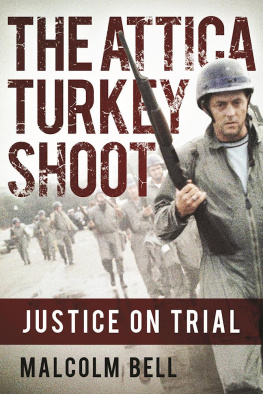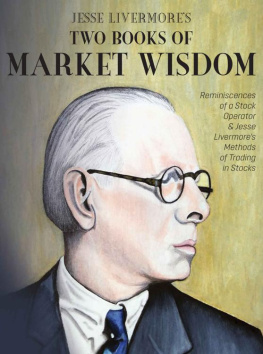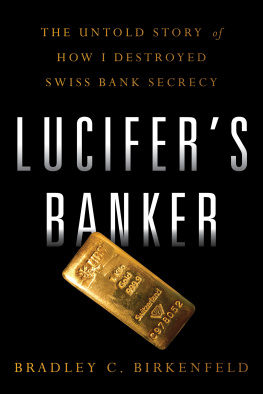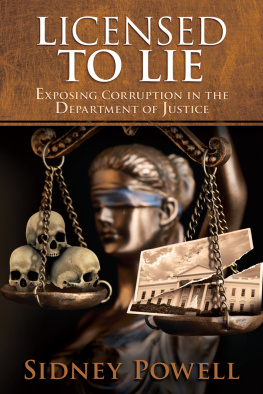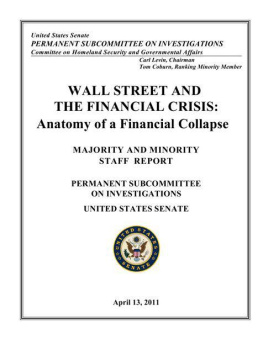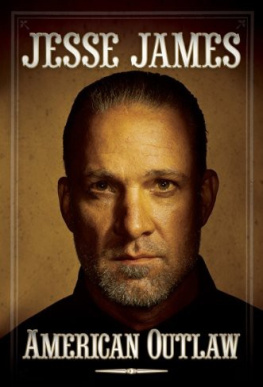We hope you enjoyed reading this Simon & Schuster ebook.
Get a FREE ebook when you join our mailing list. Plus, get updates on new releases, deals, recommended reads, and more from Simon & Schuster. Click below to sign up and see terms and conditions.
CLICK HERE TO SIGN UP
Already a subscriber? Provide your email again so we can register this ebook and send you more of what you like to read. You will continue to receive exclusive offers in your inbox.
Thank you for downloading this Simon & Schuster ebook.
Get a FREE ebook when you join our mailing list. Plus, get updates on new releases, deals, recommended reads, and more from Simon & Schuster. Click below to sign up and see terms and conditions.
CLICK HERE TO SIGN UP
Already a subscriber? Provide your email again so we can register this ebook and send you more of what you like to read. You will continue to receive exclusive offers in your inbox.

Simon & Schuster
1230 Avenue of the Americas
New York, NY 10020
www.SimonandSchuster.com
Copyright 2017 by Jesse Eisinger
All rights reserved, including the right to reproduce this book or portions thereof in any form whatsoever. For information, address Simon & Schuster Subsidiary Rights Department, 1230 Avenue of the Americas, New York, NY 10020.
First Simon & Schuster hardcover edition July 2017
SIMON & SCHUSTER and colophon are registered trademarks of Simon & Schuster, Inc.
For information about special discounts for bulk purchases, please contact Simon & Schuster Special Sales at 1-866-506-1949 or .
The Simon & Schuster Speakers Bureau can bring authors to your live event. For more information or to book an event, contact the Simon & Schuster Speakers Bureau at 1-866-248-3049 or visit our website at www.simonspeakers.com.
Interior design by Ruth Lee-Mui
Jacket design by Tyler Comrie
Jacket Art Gk Hart/Vikki Hart and Brian Summers/Getty Images
Library of Congress Cataloging-in-Publication Data is available.
ISBN 978-1-5011-2136-4
ISBN 978-1-5011-2138-8 (ebook)
For Sarah
CONTENTS
AUTHORS NOTE ON SOURCING AND METHODS
T O REPORT AND WRITE THIS story, I relied on thousands of pages of court documents, journalistic and academic accounts of events, internal government documents, emails, transcripts, and hundreds of hours of interviews with hundreds of current and former prosecutors, Congressional staffers, and other government officials and regulators, defense attorneys, bankers, investors, corporate executives, academics, lobbyists, consumer advocates, and others.
I spoke with most of the people named in this book. For those who did not speak to me, I contacted them, or attempted to contact them, to allow them to tell their story. Many of the sources I spoke to did not want their names used. Most former prosecutors continue to work in the law and dont want to threaten their careers by speaking out publicly. I have deliberately not attributed much in the book to protect my sources. Further details on sourcing for specific chapters can be found in the Notes section.
The books dialogue comes from documents or the best recollections of participants. Where I could, I tried to contact as many people in a given meeting or scene to confirm what was said. States of mind often come from the speaker, but also from documents or conversations where the speaker contemporaneously relayed to others what was said. The reader should not infer that I spoke to that person.
INTRODUCTION
T HE DEPARTMENT OF JUSTICE IS a loose federation of ninety-four offices around the country, each a realm unto itself, run by a US attorney who is almost untouchable by headquarters in faraway Washington, DC . Of all those offices, the Southern District of New York, located at the bottom tip of Manhattan, has the smartest and ablest prosecutors in the land. Any alum of the office will be happy to verify that.
The Southern Districts founding, in 1789, predates that of the Department of Justice itself. The office held its first criminal trial in 1790, which lasted a day. The first US attorney convicted two men of conspiring to destroy a brigantine and murder its captain and a passenger. The second US attorney simultaneously served as mayor of New York City. Today the office specializes in the most complex and difficult criminal cases: corporate white-collar fraud, often securities law violations. Insiders relish its nickname: the sovereign district, for its penchant for claiming jurisdiction over any such case from any corner of the United States, the other ninety-three offices be damned.
Prosecutors in the Southern District have the strongest rsums from the best schools. They should inspire trust when they stand up in court to say, I represent the government of the United States of America. But it takes something even more to get to the Southern District; something more personal. Someone somewherea top partner at a law firm, a respected judge or professorhad to send the signal. That sign indicated the candidate wasnt just special; he or she was a superstar in the making. The Manhattan US Attorneys Office launched the careers of judges and legal giants of every kind; politicians (New York City mayor Rudolph Giuliani and Representative Charles Rangel); cabinet secretaries (Henry Stimson, the US secretary of war under presidents William Howard Taft, Franklin Delano Roosevelt, and Harry Truman); a US attorney general (Michael Mukasey); FBI directors (Louis Freeh); and two Supreme Court justices (Felix Frankfurter and John M. Harlan II).
In January 2002, early in the George W. Bush presidency, the White House appointed James Comey the fifty-eighth US attorney for the Southern District of Manhattan. Comey was a Southern District alumnus with a record of serious prosecutions. He helped prosecute the Gambino Mafia family in the late 1980s and (after hed left the Manhattan office for Richmond, Virginia) the 1996 Khobar Towers terrorist bombing in Saudi Arabia. The staff, worried that the Bush administration would appoint a political operative, felt relieved. The prosecutors hadnt wanted to lose his predecessor, Mary Jo White, the first (and only) woman to have been US attorney for the Southern District of New York. She had served for almost nine years. She had been so loyal to her charges and such a stubborn guardian of the offices prerogatives that the attorneys in the office would have run through the Corinthian columns that held up the Foley Square courthouses for her.
When Comey arrived for his first day in 2002, he received a resounding ovation. Then he did something unusual. Comey took several months to feel out the office where hed been a prosecutor a few years earlier, meeting new attorneys and learning what kinds of cases they were making.
After Jim Comey had finished his months-long listening tour, he decided to give a speech to the criminal division. He made his debut during a regularly scheduled meeting, held in the evening in what the assistants called the Old Courthouse in lower Manhattan. The staff gathered in a courtroom where trials took place. Assistant prosecutors piled into the spectator benches. These lawyers were the nations elite, most of them in their twenties and early thirties. From youth, they had been the highest achievers and hardest workers. They had summered as associates at the most powerful law firms. They had clerked for the finest judges. In the coming years, many of the attendees became star prosecutors and top partners at major law firms. Members of the Southern District at that time included Preet Bharara and David Kelley, both successors to Comey and White as US attorneys for the Southern District; Ben Lawsky, who would become the top New York State financial regulator; Neil Barofsky, the future overseer of the federal bank bailout program in the wake of the 2008 crisis; and Ronnie Abrams and Richard Sullivan, future judges.
Next page

